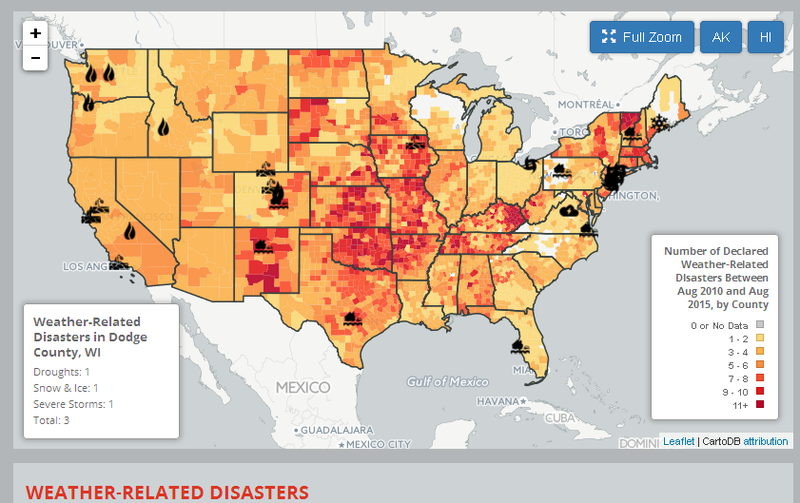Najam on Living in “The Age of Adaptation”

Dr. Adil Najam, Dean of the Frederick S. Pardee School of Global Studies, believes we are already living in the “Age of Adaptation.” Our failure to mitigate the buildup of greenhouse gases has now made climate change a reality which people, including here in Massachusetts, will have to grapple with in term of, amongst other things, more extreme climatic variability and severity.
Najam made this argument during a press conference held to unveil an interactive tool that maps severe weather events across the United States, including here in Massachusetts. The map was prepared by the Environment America Research and Policy Center and was introduced in a press conference organized by Environment Massachusetts. Reports of the press conference and Dean Najam’s comments were carried by The Republican (November 12, 2015) and by WAMC Northeast Public Radio (November 12, 2015).
In the radio report on WAMC Northeast Public Radio points, Najam points out that “when we started working on the climate issue a quarter century ago I don’t think any of us expected that we would still be working on this a quarter century later.” He said this was largely because we had then been confident that the world would solve the problems of climate change well before we had to face the consequences. “Nor did most of us expect that we would be talking about impacts as a reality,” he said.
Now that we live in what he called the “Age of Adaptation,” he points out that “the severity of weather events is not the biggest concern, but rather the unpredictability,” and that “the addition of greenhouse gases over a relatively short period of time has messed with the atmospheric system.” The report further quoted him as saying:
“The reason that we have this erractic-ness is that what we knew about the system, which was very small to begin with, has become more and more unreliable because we’ve messed with the system enough that we do not know now how things will behave,” said Najam.
Najam adds that the most modernized countries have a responsibility to those less fortunate. “There are millions and millions of the poorest people in the world whose future will depend on our emissions,” Najam said. “The costs that they are already having to pay are far, far greater than even the things that we can imagine. We are talking about loss of life, livelihood and in some countries the loss of very large swaths of populations. We have a modern responsibility to the planet.”
Najam further explains what he means by living in the “Age of Adaptation” in a separate report on the event published in The Republican.
“If we simply knew every winter would get worse, we could adapt,” said Najam, speaking with reporters on Thursday. “But our weather will be erratic. It is that surprise that is the real cost of climate change to ordinary people. And the most vulnerable, and least prepared, will bear the cost”…
While Najam said it’s impossible to directly attribute any one event to climate change, science predicts that weather-related disasters will become more frequent and severe if the current trajectory remains unchanged…
There is widespread consensus within the scientific community that climate change is a reality, and that human activity is a contributor, Najam added. Attending to climate change is a “moral issue,” he said, because of its disproportionate impact upon populations that do not have the resources to mitigate its impacts.
Adil Najam is the Inaugural Dean of the Pardee School. Earlier, he served as Vice Chancellor (equivalent to president) of the Lahore University of Management Sciences (LUMS) in Lahore, Pakistan (2011-13) and as the Director of the Boston University Pardee Center for the Study of the Longer-Range Future (2007-11). He was a co-author for the Third and Fourth Assessments of the Intergovernmental Panel on Climate Change (IPCC) and serves on the UN Committee on Development (CDP). Learn more about him here.